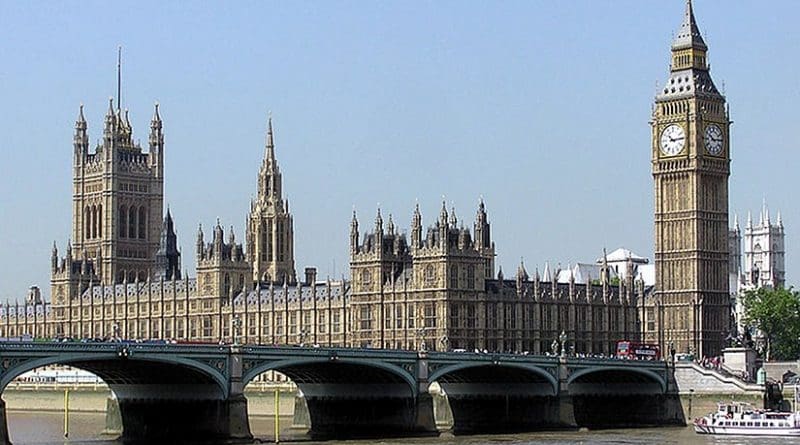Has Britain Lost An Empire And Failed To Find A Role, Again? – OpEd
By Arab News
By Anthony Harris*
I am often asked if Britain’s role in the Middle East and elsewhere will be diminished by its leaving the EU. I fear the answer is an unequivocal yes. The pointers are already there: Based on the strength of the pound, the UK economy is shrinking; foreign investment in Britain is slowing; economic growth has gone from being the fastest in the G-7 to being the slowest; and such growth as there is derives from consumer spending and personal debt.
I have often heard Leavers say the arguments for and against leaving the EU are equally balanced. This is not true: The UK economy is slowing noticeably. British people are becoming poorer. They are also beginning to realize that their government is unprepared for the complexity of what they are trying to achieve by leaving the EU.
It may well be that the UK economy will one day grow again. One devoutly hopes so. My argument about British influence diminishing is based more on geopolitics than the economy. In 1962, then-US Secretary of State Dean Acheson famously said Britain had lost an empire and had not yet found a role. I can remember how this upset many leading British politicians at the time, though it was true.
The UK was still recovering from World War II, and was shedding colonies out of political and economic necessity. Joining Europe to boost the economy and help ensure there would be no more wars in Europe seemed the right new role for Britain, and it worked well for 43 years.
Many Leavers seem to be affected by “colonial nostalgia,” since they claim to remember the old days when Britain traded with her former colonies. They argue that distant Australia and New Zealand are among many ready to do special trade deals with the UK. They point to the US as our greatest ally, and to President Donald Trump’s statement last week that he is ready to do “a very, very big, very powerful trade deal with the UK.”
Nothing can happen for two years until Britain has left the EU, and I wish British negotiators luck, since if they read Trump’s book “The Art of the Deal,” they may find it hard, as the weaker partner, to get a good deal.
As for Australia and New Zealand, the clock unfortunately cannot be put back to the early 1970s. Geography now counts for more than language. Australia now does 20 times more trade with China than with Britain, which is Australia’s 21st trading partner in terms of the size of exports and imports.
Power today is concentrated in big countries such as the US, China, India and Russia, and big blocs such as the EU, the largest trading group in the world. Even after Britain leaves the EU, the latter will remain five times bigger than the UK. If Trump or China’s President Xi Jinping should want to consult Europe about international problems, they will first talk to German Chancellor Angela Merkel, French President Emmanuel Macron or Russian President Vladimir Putin.
They may consult Britain, but since it has no seat in Brussels, and has developed the habit of following the US, it will have little power to influence events. Britain is of course a significant player in NATO, and has always been active in defense matters. The UK makes a valuable contribution in international efforts to combat terrorism, and its friends and allies hope it will continue to do so.
But we should not forget that Britain’s army is smaller than the US Marine Corps, and repeated budget cuts have greatly reduced the size of the Royal Navy and Royal Air Force. The UK has to face up to the fact that other countries have become larger and more powerful: It has to live in the modern globalized world.
My main worry is that the government is now so fixated on leaving the EU that it is forgetting the role Britain played until recently in other parts of the world, notably the Middle East. Its international friends, especially in the Gulf, are wondering why the UK seems to have lost its voice.
Britain’s foreign secretary recently said his country will continue post-Brexit to be a major global player. This is delusional: Britain’s role in this region will continue to shrink if it is obsessed only with domestic affairs, if it abdicates any real interest in the region, and if it stops talking to its friends.
• Anthony Harris is former British ambassador to the UAE and a career diplomat in the Middle East. He can be reached at [email protected].

